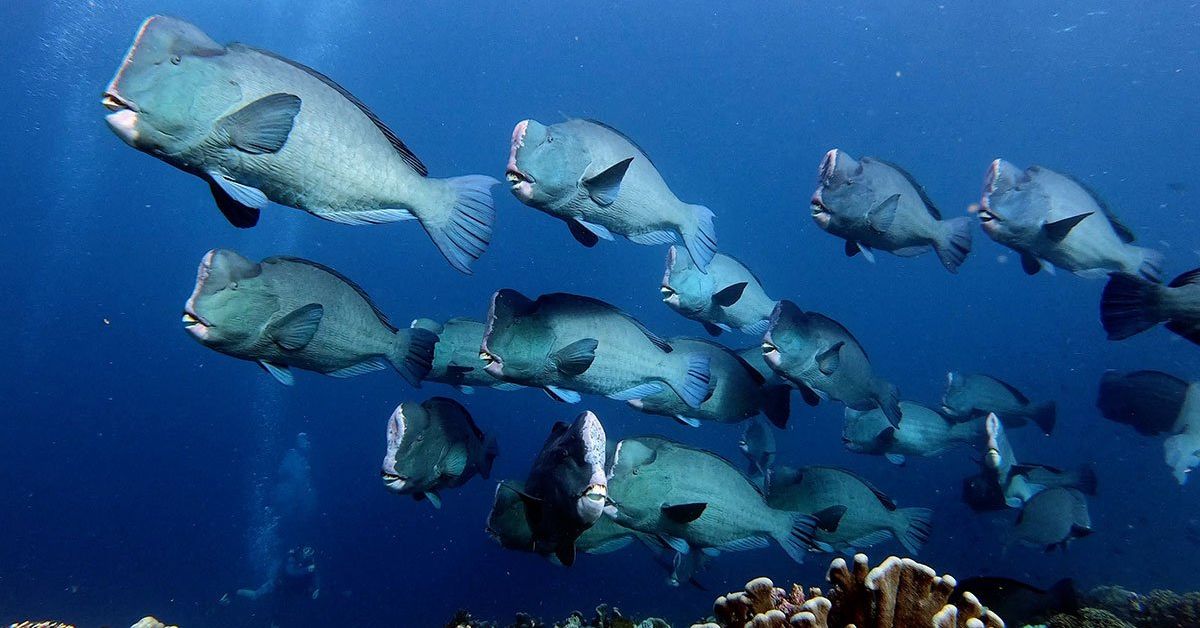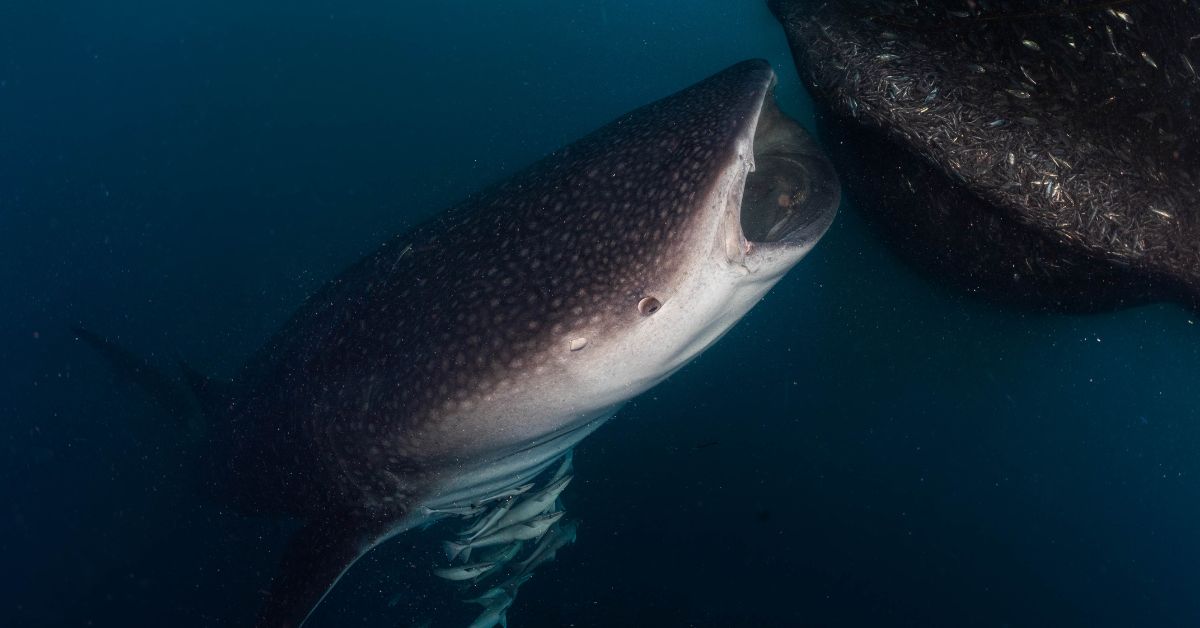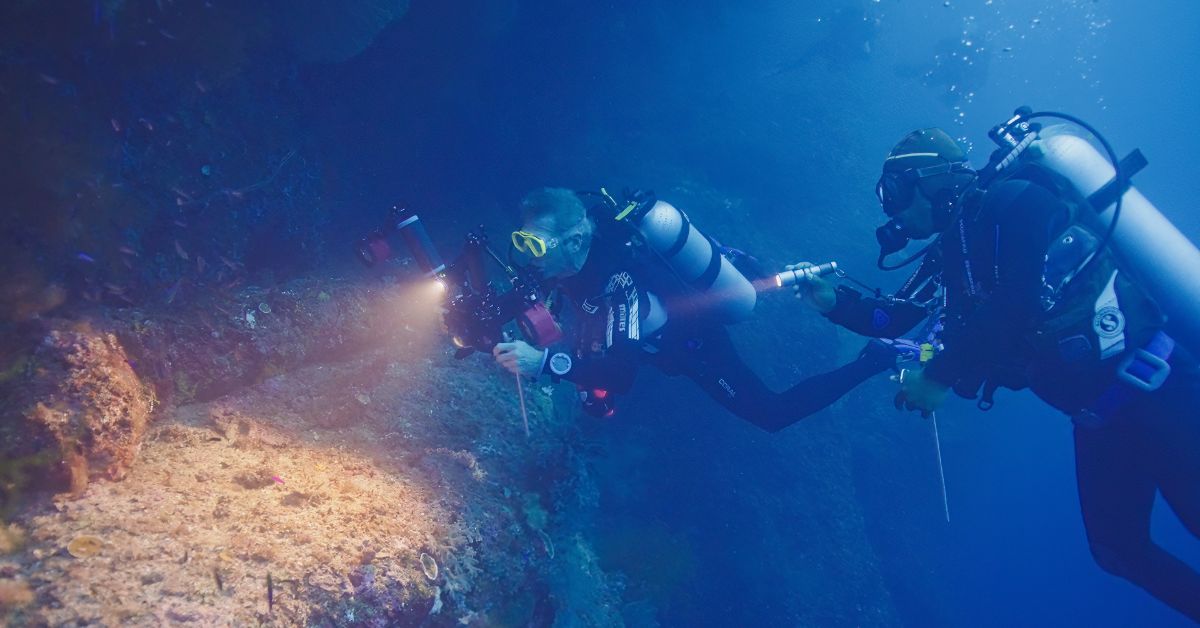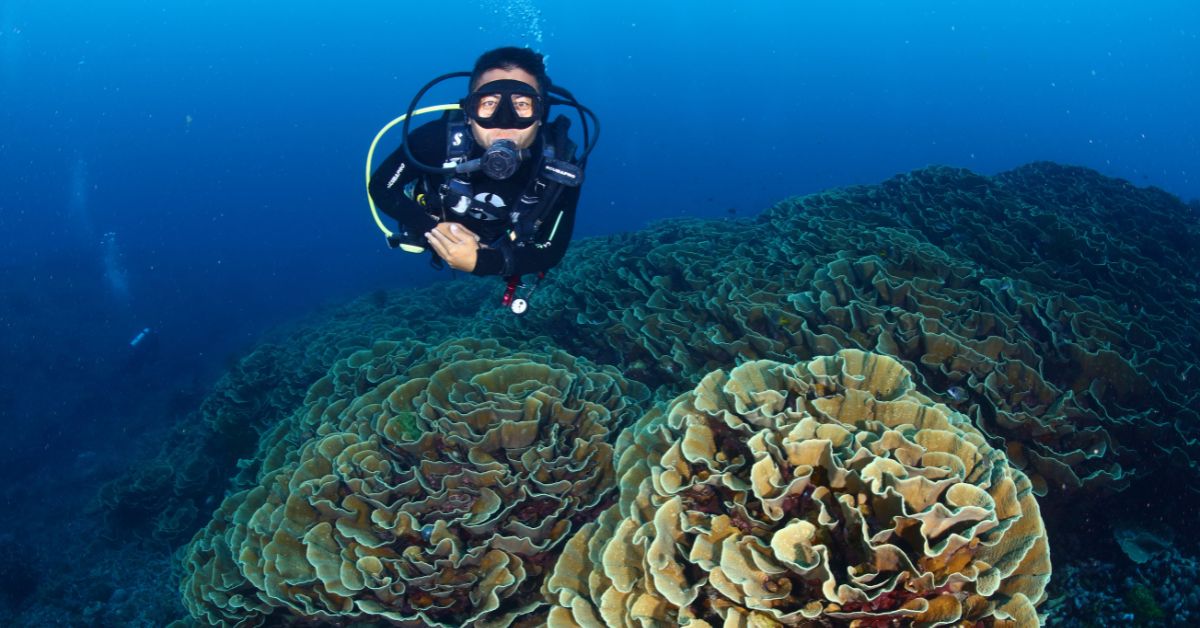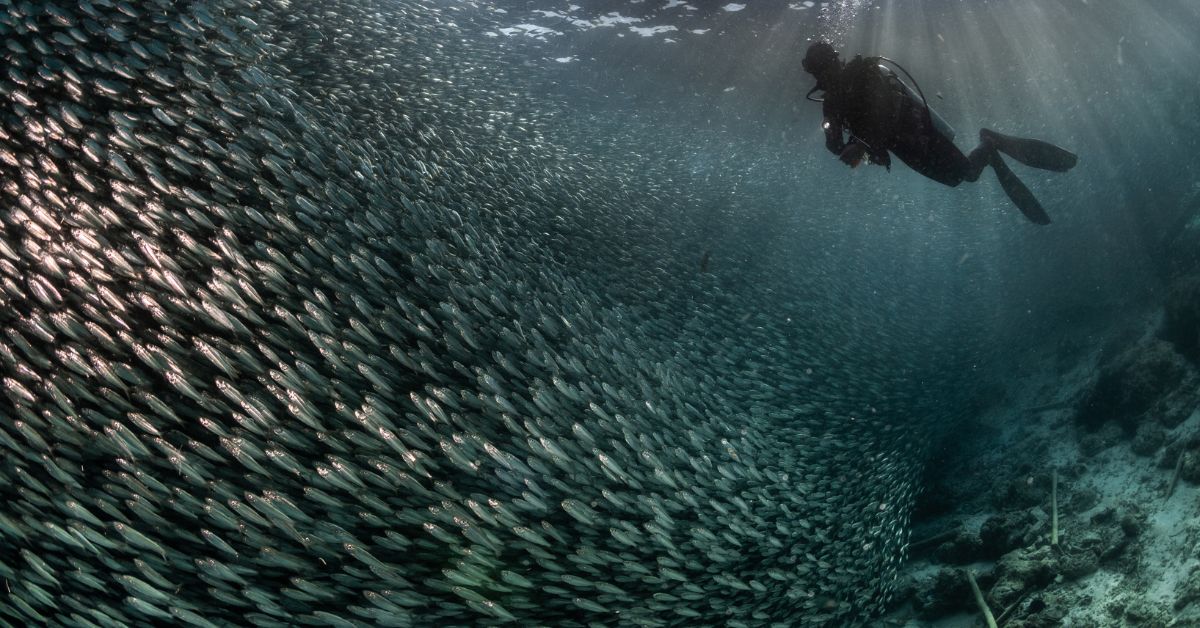Scuba diving is an incredible way to get an up-close view of some of Earth’s most beautiful sites. Coral reefs, colorful fish, and sunken ships are just a few treasures you can encounter while exploring the ocean’s depths. During a dive, you visit a unique ecosystem you must respect and protect to maintain its beauty for future generations. Learn about what it means to be a responsible scuba diver and how to do it.
What Is Responsible Scuba Diving?
Responsible scuba diving means being aware of your impact on the environment and taking steps to minimize any adverse effects. It involves following proper diving practices, respecting marine life and their habitats, and leaving the dive site as you found it.
Due to threats such as pollution and overfishing, our oceans and marine life already face significant challenges. As divers, we are responsible for protecting the underwater world we explore.
9 Ways To Dive Responsibly
The underwater world is a treasure trove of wonders and mysteries, home to vibrant coral reefs and fascinating marine creatures. Yet, this delicate ecosystem faces threats from pollution and careless human activity. To be a respectful scuba diver, you must:
- Choose the right diving company
- Respect the environment
- Practice responsible photography
- Pick up debris
- Prioritize safety
- Obtain diving certifications
- Perfect buoyancy control
- Use eco-friendly equipment
- Participate in conservation efforts
By implementing these practices, you can make a positive impact on the underwater world and contribute to its preservation.
Choose the Right Diving Company
Selecting an eco-conscious local diving company supports sustainable practices and regional economies. These companies prioritize environmental protection and educate divers on responsible behaviors.
Moreover, local businesses understand the unique ecological needs of their regions, providing valuable insights and guidance. Since owners of the company live in the area, they understand the importance of ocean life and want to preserve its beauty.
Dewi Nusantara
Dewi Nusantara offers incredible diving experiences in Indonesia and will take you to the country’s most picturesque dive sites.
Respect the Environment
To ensure a thriving underwater ecosystem, divers must respect the environment by keeping a safe distance from coral reefs and marine animals. Touching or disturbing these delicate organisms can cause irreparable harm.
During a dive, you are a visitor to an underwater home, so you should respect the creatures living there. Maintain a respectful distance from underwater critters and observe sea life quietly. This practice keeps the ecosystem’s natural balance, allowing future divers to enjoy vibrant, unspoiled underwater landscapes.
Don’t Take Anything
Although taking small underwater treasures as souvenirs can be tempting, doing so is irresponsible. Removing shells, rocks, or other natural items can disturb the habitats of marine creatures. Each piece plays a role in the ecosystem, contributing to its stability and health. Leave the ocean as it was when you arrived—untouched and unspoiled.
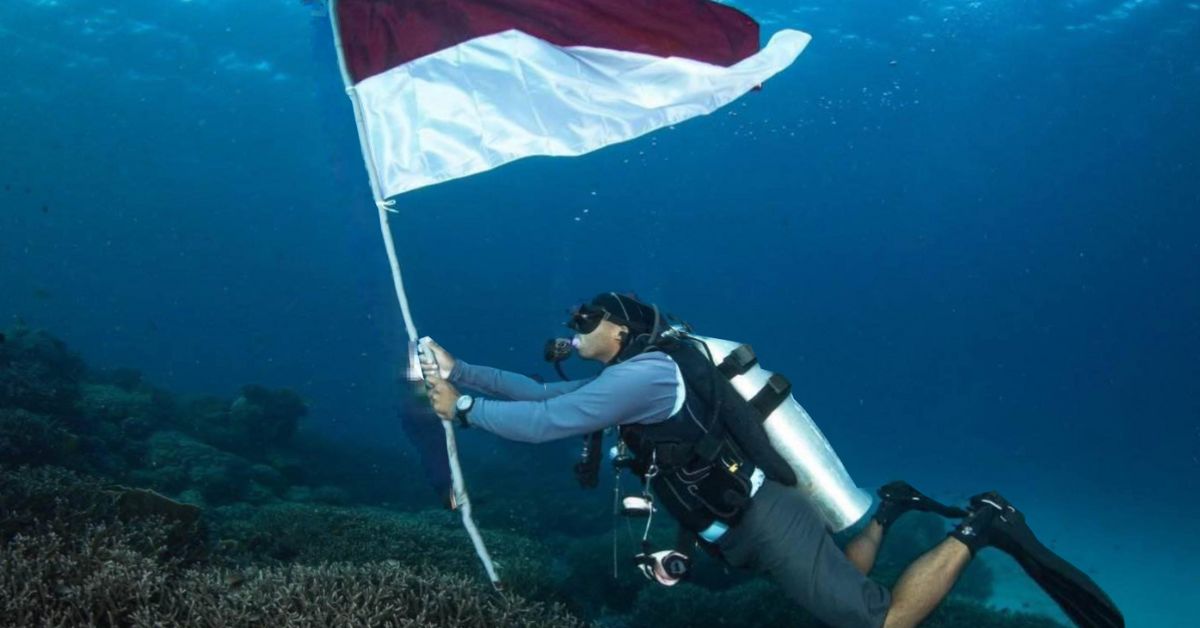
Practice Responsible Photography
Underwater photography is a popular activity among scuba divers, but it comes with its own responsibilities. When taking photos, be mindful of your surroundings and do not touch or disturb marine life in any way. Flash photography can also harm some marine animals, so avoid using flash when taking pictures underwater.
Pro Tip
Refrain from altering their environment for better photo opportunities. Moving coral or sea creatures for the perfect shot can devastate their homes and habitats.
Pick Up Debris
Ocean debris poses a significant threat to marine life, so divers can make a difference by picking up trash during their dives. Many scuba divers aim to collect at least one piece of debris per dive. Removing trash, such as plastic bags or fishing lines, protects marine animals from entanglement and ingestion.
Pro Tip
Before removing trash, ensure no sea life has taken shelter in the debris; small ocean creatures may make a home in debris such as bottles or cans.
Prioritize Your Safety
Responsible diving also relates to personal accountability, so always follow safety protocols. You should know how to use all your equipment and how to properly descend and ascend. Likewise, safe divers can better manage their buoyancy and avoid accidental contact with marine life.
Obtain Diving Certifications
Scuba diving companies require all participants to hold appropriate certifications, which specify how deep they can dive, how long they can stay underwater, and other essential safety guidelines.
Receiving diving certifications also ensures you have gained the knowledge and skills to dive safely and responsibly. Certification courses often include information about environmental conservation and responsible diving practices, promoting a more environmentally conscious community of divers.
Perfect Buoyancy Control
Maintaining proper buoyancy throughout your dive gives you better control over your underwater movements. This control reduces the risk of accidentally damaging coral reefs or disturbing marine life. Also, proper buoyancy control conserves your energy and air supply, allowing you to enjoy longer dives.
Practice proper kicking techniques and use your breathing to maintain a neutral position in the water to perfect your buoyancy control. This skill takes time and practice to develop, but it is essential for responsible diving.
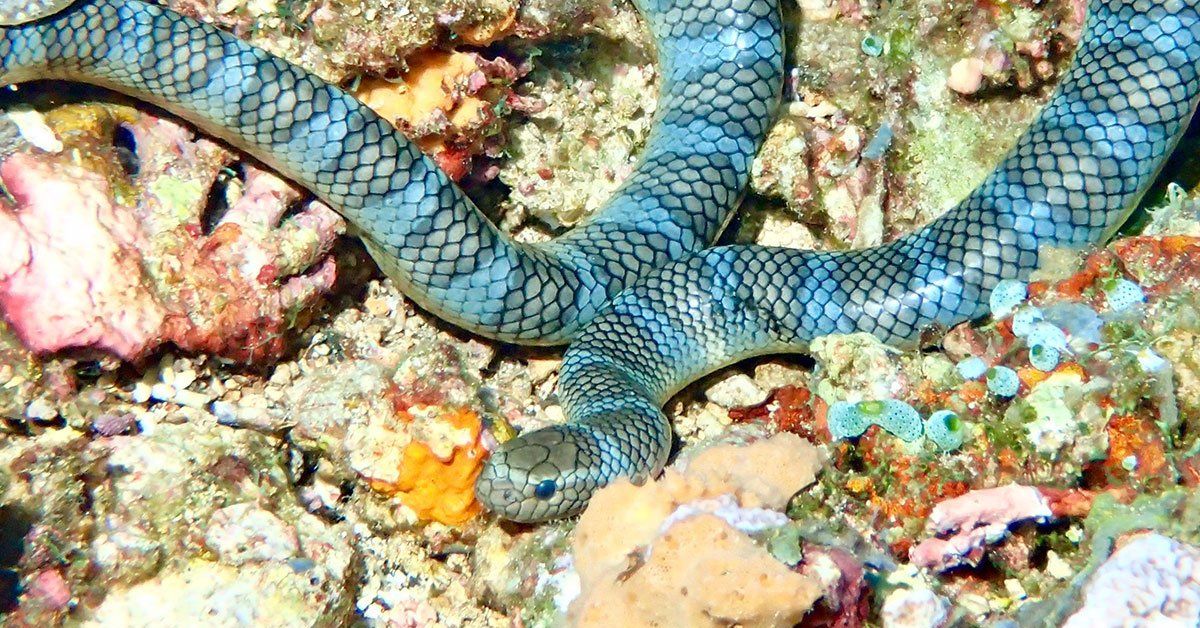
Use Eco-Friendly Equipment
Investing in eco-friendly gear contributes to sustainable practices and environmental protection. It’s best to use sunscreen made with zinc oxide, as it harms coral reefs less, especially compared to typical, chemically based sunscreens. Additionally, consider using a reef-safe biodegradable cleaning agent for your diving equipment to minimize pollution in the ocean.
If you’re unsure what to use or whether your equipment is eco-friendly, contact the company you’ll dive with to ask for recommendations. They can recommend what’s best based on their local environment and diving practices.
Participate in Conservation Efforts
Knowing what it means to be a responsible scuba diver and how to do it also relates to what you do out of the water. You’ve had a unique diving experience, and now you fully understand the importance of preserving our oceans.
As a responsible diver, consider participating in conservation efforts such as:
- Participating in underwater cleanups
- Monitoring and documenting marine life population data
- Educating others on responsible diving practices
These efforts support the protection and preservation of oceanic life and promote sustainable practices in the diving community. Your involvement empowers you to make a positive impact, ensuring the ocean remains a place of beauty and wonder for years.
Continuously Educate Yourself
As responsible divers, we must continuously educate ourselves on environmental issues and sustainable practices. Staying informed allows us to adapt our behaviors and support current conservation efforts. With new technology and research emerging, there are always opportunities to improve our diving practices. By staying informed and open-minded, we can continue to be responsible stewards of the underwater world.
Dive in the Banda Sea
Dewi Nusantara’s Banda Sea liveaboard allows you to explore incredible dive spots. During this cruise, you’ll experience the biodiversity of Indonesia’s majestic underwater landscape. Schedule your scuba diving adventure to witness the beauty of nature.


